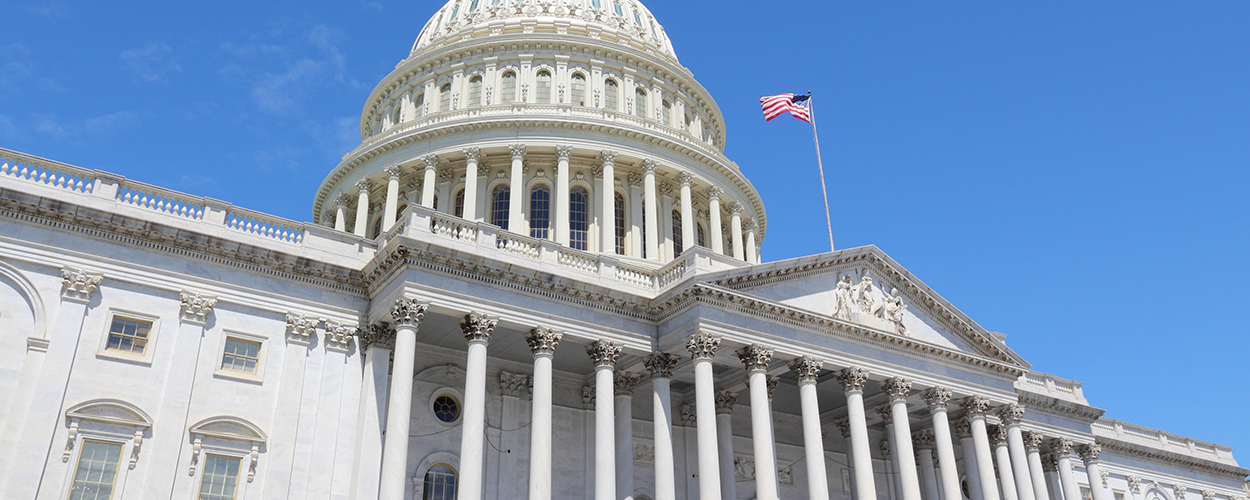This website uses cookies so that we can provide you with the best user experience possible. Cookie information is stored in your browser and performs functions such as recognising you when you return to our website and helping our team to understand which sections of the website you find most interesting and useful.
Business News Digital Labels & Publishers Media
US record industry lobbying group makes copyright demands of new Congress
By Chris Cooke | Published on Thursday 19 January 2017

Seemingly bored of penning missives to the now very imminent new President of the United States Of America, the US music industry has decided to send a letter to members of the newly appointed Congress in Washington requesting that they take a few minutes off depriving millions of poor people from life-saving healthcare to tackle three of the peculiarities of American copyright law.
The letter comes from musicFIRST, which brings together various groups repping record companies and recording artists. As a result, the three copyright technicalities the letter focuses on relate to recordings rather than songs, so there’s no talk about consent decrees and 100% licensing. And the lobbying group has always had a particular focus on radio, so not even safe harbours appear.
The three issues on which musicFIRST wants Congressional assistance are the lack of a general performing right with the American sound recording copyright, the whole pre-1972 debacle, and fucking compulsory licences.
US copyright law is highly unusual in only providing sound recording copyright owners with a digital performing right, so that AM/FM radio stations don’t need to get a licence from or pay any royalties to labels or artists. American record companies have been lobbying to get a proper performing right in line with their counterparts around the world for years, but so far without success.
Writes musicFIRST in its new letter to Congress: “Terrestrial radio must join EVERY other platform that builds a business delivering copyrighted content and compensate artists for their music. Radio in the US is a big business – ten companies control 50% of the US market, and long-gone are the days when radio helped ‘discover’ performers”.
That latter point relates to the long-delivered excuse from the US radio sector as to why it shouldn’t pay royalties to labels. Airplay is promo, it argues, and labels and artists should be grateful for that without demanding payment.
But, says musicFIRST, “only a small percentage of songs played on radio are new, and music fans overwhelmingly look to streaming and other platforms to discover music. The imaginary argument that radio ‘compensates’ artists by promoting them in the era of social media, digital services and 24 hour entertainment news doesn’t hold up anymore”.
It goes on: “Big radio makes billions by playing (predominantly older) music, pure and simple. In any other market-based arrangement they would have to compensate the owner of that music at market rate. Congress can very easily fix this”.
The whole pre-1972 thing stems from the fact that US-wide federal copyright law only protects sound recordings released since 1972. Earlier tracks are protected by state-level copyright law, which has caused all sorts of legal wrangling, especially since federal law was updated to say that online and satellite radio should pay royalties, putting labels and artists who own pre-1972 tracks at a disadvantage.
“It’s an inexplicable anomaly in federal law that even the Library Of Congress can’t explain”, writes musicFirst. “Older artists have been forced to chase large, profitable music services across multiple state courts in lengthy and expensive litigation to pursue basic compensation for their valuable catalogues”.
And finally, compulsory licences, which force artists and labels to license certain kinds of services at rates set by a statutory body or a court. Now, compulsory licences aren’t an oddity of American copyright law – they’re found in lots of copyright systems – but the compulsory licence that covers personalised radio services like Pandora is more unusual, and it’s that compulsory licence musicFIRST takes aim at.
Though, of course, Pandora has now shifted over to direct licensing and is no longer using the compulsory licence administered by SoundExchange. Which means it now gets to be the good guy in musicFIRST pronouncements, while other services still utilising that licence and therefore paying the statutory rates – most notably satellite broadcaster SiriusXM – get to be name checked as the bad guy.
“Digital services like Pandora use a market-based rate”, the letter notes, but “satellite services like SiriusXM use a grandfathered below-market rate. We want every business that delivers music to consumers to thrive and grow, but they all should pay a market-based rate to the artists and creators that they depend on”.
So, to conclude, hey women and men of the mighty American Congress, stop killing poor people and occupy your time fixing dumb copyright laws instead.





